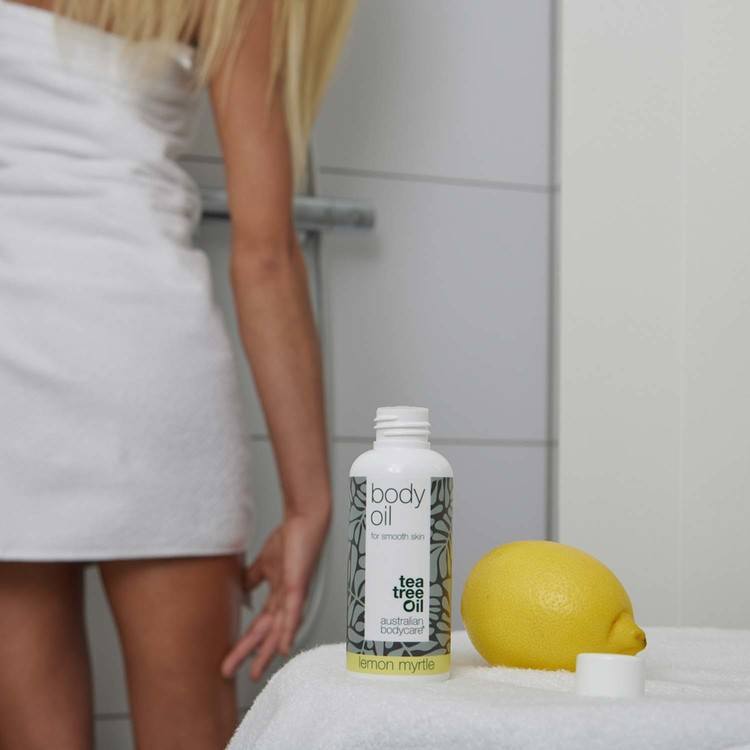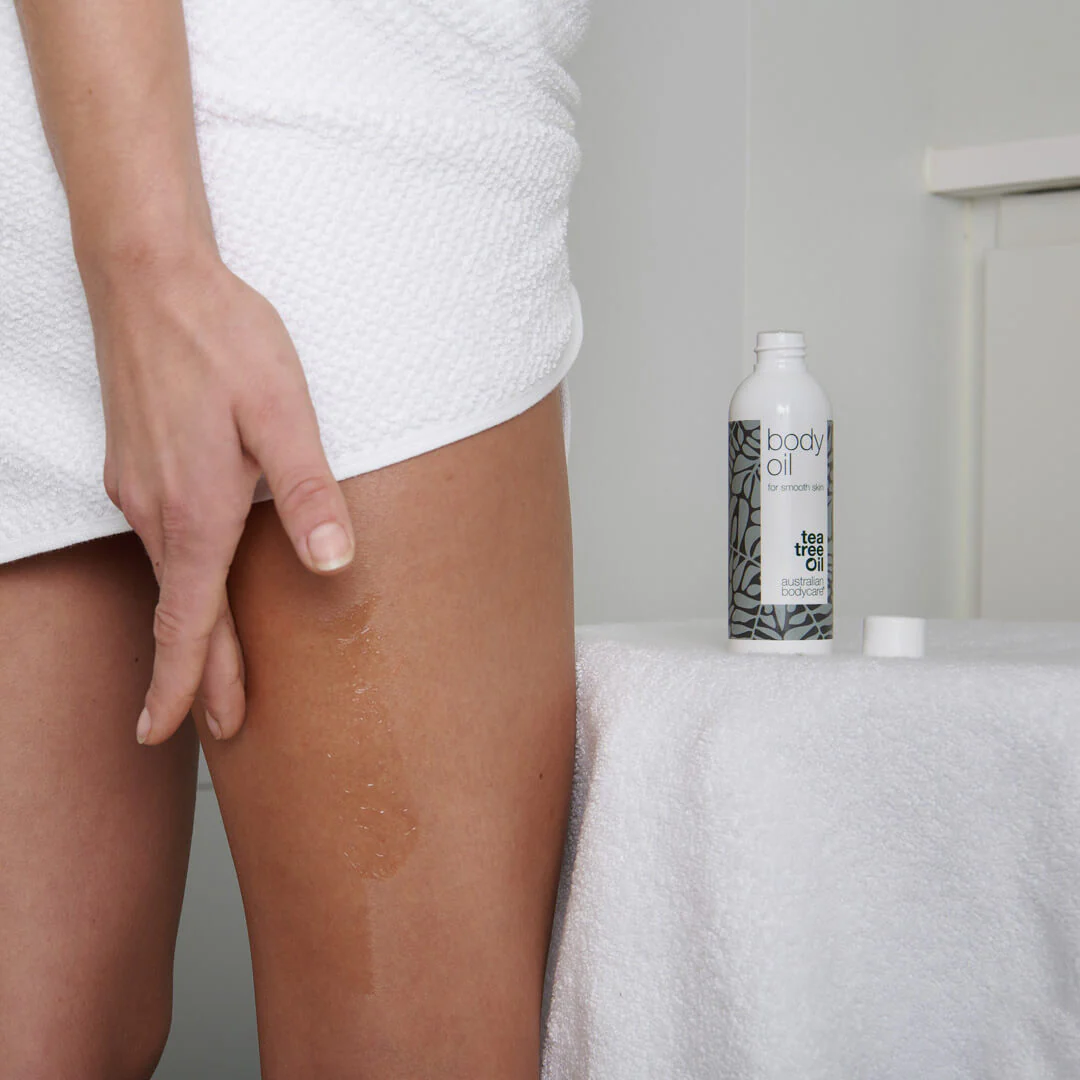
The Ultimate Guide to Tea Tree Oil Body Wash
Discover the Power of Nature’s Cleanser
Tea tree oil body wash has gained immense popularity in recent years. This natural cleanser offers a multitude of benefits for the skin. Derived from the leaves of the Melaleuca alternifolia tree, tea tree oil possesses potent antibacterial, antifungal, and anti-inflammatory properties. When incorporated into body wash, it creates a powerful yet gentle cleansing solution. This guide will explore the many advantages of using tea tree oil body wash, its proper usage, and how it can revolutionize your skincare routine.
Understanding the Science Behind Tea Tree Oil
Tea tree oil contains over 100 components, but terpinen-4-ol stands out as the most active. This compound gives tea tree oil its impressive antimicrobial properties. Studies have shown that tea tree oil can effectively combat various bacteria, fungi, and viruses. Its ability to penetrate the skin’s outer layer allows it to work deep within pores, addressing issues at their source. Tea tree oil also exhibits anti-inflammatory effects, which can help soothe irritated skin.
These properties make it an excellent ingredient for body wash, especially for those with acne-prone or sensitive skin. The natural origin of tea tree oil appeals to consumers seeking alternatives to harsh chemical cleansers. Its effectiveness, combined with its natural status, has contributed to its growing popularity in skincare products.
Benefits of Using Tea Tree Oil Body Wash
Tea tree oil body wash offers numerous advantages for the skin. Its antibacterial properties help combat body acne, making it an excellent choice for those prone to breakouts on the chest, back, or shoulders. The antifungal qualities of tea tree oil can assist in preventing and treating conditions like athlete’s foot and nail fungus. For individuals with sensitive skin, tea tree oil’s anti-inflammatory effects can help reduce redness, itching, and irritation.
The body wash can also help alleviate body odor by eliminating odor-causing bacteria. Many users report that regular use of tea tree oil body wash leaves their skin feeling refreshed, clean, and invigorated. The natural scent of tea tree oil provides an aromatherapeutic experience during showers, promoting relaxation and stress relief. Additionally, tea tree oil can help unclog pores, leading to smoother, clearer skin over time.
How to Choose the Right Tea Tree Oil Body Wash
When selecting a tea tree oil body wash, several factors should be considered. The concentration of tea tree oil in the product is crucial. Look for body washes that contain at least 2-5% tea tree oil to ensure effectiveness. Check the ingredient list to avoid products with harsh chemicals, artificial fragrances, or synthetic dyes that may irritate the skin. Opt for body washes that combine tea tree oil with other nourishing ingredients like aloe vera, vitamin E, or jojoba oil to provide additional skin benefits. Consider your skin type when choosing a formulation.
Those with oily or acne-prone skin may prefer a gel-based body wash, while individuals with dry skin might benefit from a creamy, moisturizing formula. Read product reviews and testimonials to gauge the effectiveness and user experience of different brands. It’s also important to choose products from reputable manufacturers who prioritize quality and ethical sourcing of ingredients. Some people may prefer organic or vegan options, so look for appropriate certifications if these factors are important to you.
Proper Usage and Application of Tea Tree Oil Body Wash
To maximize the benefits of tea tree oil body wash, proper usage is essential. Start by wetting the body thoroughly with warm water. Dispense a small amount of body wash onto a loofah, washcloth, or directly onto the skin. Gently massage the product into the skin using circular motions, paying extra attention to areas prone to acne, odor, or other skin concerns. Allow the body wash to sit on the skin for a minute or two before rinsing. This gives the tea tree oil time to penetrate the skin and work its magic. Rinse thoroughly with warm water to remove all traces of the product.
Pat the skin dry with a clean towel, being careful not to rub too harshly. For best results, use the tea tree oil body wash daily or at least several times a week. Those with sensitive skin should start with less frequent use and gradually increase as tolerated. It’s important to note that while tea tree oil is generally safe for most people, some individuals may experience skin irritation. Perform a patch test before using a new tea tree oil body wash to ensure compatibility with your skin.
Combining Tea Tree Oil Body Wash with Other Skincare Products
Tea tree body wash can be seamlessly integrated into a comprehensive skincare routine. After cleansing with the body wash, follow up with a moisturizer to keep the skin hydrated. Look for lightweight, non-comedogenic options that won’t clog pores. For those dealing with body acne, consider using a tea tree oil spot treatment on problem areas after showering. Exfoliation can enhance the effectiveness of tea tree oil body wash. Use a gentle body scrub once or twice a week to remove dead skin cells and allow the tea tree oil to penetrate more effectively.
When treating fungal infections, combining tea tree oil body wash with a topical antifungal cream can yield better results. For an extra boost of tea tree oil benefits, add a few drops of pure tea tree essential oil to unscented body lotion. This creates a custom moisturizer that continues to deliver the oil’s properties throughout the day. Remember to always dilute pure tea tree oil properly to avoid skin irritation. Sunscreen remains crucial when using tea tree oil products, as the oil can increase skin sensitivity to UV rays.

Potential Side Effects and Precautions
While tea tree body oil offers numerous benefits, it’s important to be aware of potential side effects and take necessary precautions. Some individuals may experience skin irritation, redness, or itching when using tea tree oil products. These reactions are generally mild and subside quickly, but discontinue use if persistent irritation occurs. People with eczema or extremely sensitive skin should consult a dermatologist before incorporating tea tree oil body wash into their routine. Pregnant or breastfeeding women should also seek medical advice before using tea tree oil products.
Never ingest tea tree oil or use it in or around the mouth, as it can be toxic if swallowed. Keep tea tree oil products away from pets, particularly cats, as they can be harmful to animals. When using pure tea tree oil in conjunction with body wash, always dilute it properly to avoid skin irritation. Store tea tree oil body wash in a cool, dry place away from direct sunlight to maintain its efficacy. Pay attention to expiration dates and discontinue use if the product’s color, texture, or scent changes significantly.
The Environmental Impact of Tea Tree Oil Production
The rising popularity of tea tree body oil wash has led to increased demand for tea tree oil production. This has both positive and negative environmental implications. On the positive side, tea tree plantations can provide habitat for wildlife and contribute to carbon sequestration. Many tea tree farms employ sustainable practices, such as organic farming methods and responsible water management. However, the expansion of tea tree plantations has also led to concerns about habitat destruction and biodiversity loss in some areas.
Sustainable harvesting practices are crucial to minimize environmental impact. Look for products that use tea tree oil from certified sustainable sources. Some companies participate in reforestation efforts or carbon offset programs to mitigate their environmental footprint. The production process of tea tree oil itself is relatively low-impact, as it uses steam distillation rather than chemical extraction methods. However, the packaging and transportation of tea tree body oil wash products contribute to their overall environmental impact. Choose products with minimal, recyclable packaging when possible. Supporting brands that prioritize sustainability can help drive positive change in the industry.

The Future of Tea Tree Oil in Skincare
As research into the benefits of tea tree oil continues, its role in skincare is likely to expand. Scientists are exploring new applications for tea tree oil, including its potential in treating antibiotic-resistant bacteria. This could lead to the development of more targeted tea tree oil products for specific skin conditions. Advances in formulation technology may result in more stable and effective tea tree oil body washes, enhancing their benefits and reducing the risk of irritation. The growing interest in natural and organic skincare is likely to drive further innovation in tea tree oil products.
Expect to see more specialized formulations tailored to different skin types and concerns. The rise of personalized skincare may lead to custom-blended tea tree oil body washes that cater to individual needs. As sustainability becomes increasingly important to consumers, the tea tree oil industry will likely focus more on eco-friendly production methods and packaging. This could include the development of waterless or concentrated formulas to reduce packaging waste and transportation emissions. The integration of tea tree oil with other natural ingredients may lead to new synergistic blends that offer enhanced skincare benefits.



